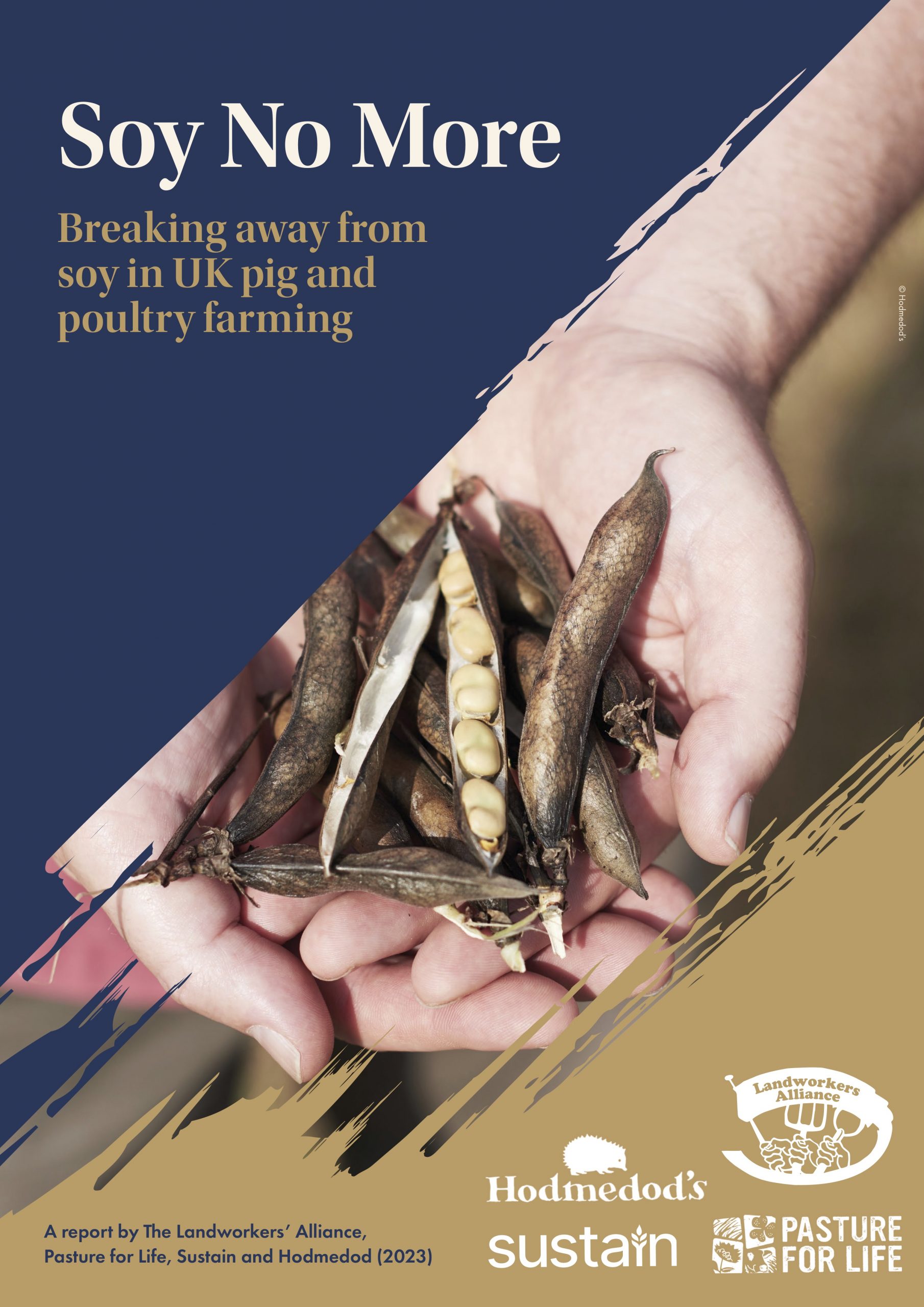Exploring agroecological alternatives to soy-based pig and poultry feed
What’s the issue?
Rising global demand for soy is contributing to widespread deforestation in the Global South, and the majority of this demand is coming from the animal feed industry – mainly for feeding pig and poultry.
Each year the UK imports around 3 million tonnes of soy for animal feed, and WWF estimate that the land required to grow this soy amounts to around 1.7 million hectares – an area nearly the size of Wales.
Over half of the world’s soy (and almost all of the UK’s) comes from South America – either from the Amazon, or from other biodiverse regions which, as a result of increased soy production and other land-hungry industries,
continue to be vulnerable to high rates of deforestation.
There is an urgent need to transition away from an industrial pig and and poultry farming model which is driving land-use change overseas, to a system where more ethically produced meat can be produced on a smaller and more localised scale.
.
What are we doing?
LWA has launched a joint campaign – together with Pasture for Life (PFLA), Sustain, Feedback and Hodmedod – which aims to raise awareness about the land-use change and deforestation associated with the global soy animal feed supply chain and to explore agroecological alternatives for feeding pigs and poultry in the UK.
As part of this campaign we have published a report: ‘Soy No More: Breaking away from soy in UK pig and poultry farming’ which highlights the environmental impact of the global soy animal feed industry and models the opportunities and trade offs of replacing soy in pig and poultry feed with alternative protein sources.
What can you do?
If you raise pigs and poultry on soy-free feed – get in touch! Alongside Pasture for Life and Hodmedod we are organising a series of farm tours over summer and autumn 2023 to showcase alternative feed systems; including pasture, home-grown legumes and insect feed.
Please contact: jyoti.fernandes@staging.landworkersalliance.org.uk
More information on these farm tours can be found in the drop down sections below.
June 8th: Pastured Pigs Farm Walk: Working towards soya-free pig production
Helen and Sam Wade have farmed Organic pigs at Eastleach Downs for over 25 years. Their system has evolved over that time and they have recently transitioned to a herd of British Saddlebacks. They have been working hard to attempt to eliminate soya from the pigs diet by taking a whole farm approach to their pig enterprise and producing a home grown ration, growing crops of grain and protein (wheat and beans, and peas and barley) together. The pigs also play an essential role in the fertility building stage of the wider arable enterprise which incorporates herbal leys and fertility building clover leys within their rotation.
Eastleach Downs have their own on farm butchery which allows for a variety of routes to market for their pork including direct selling to consumers and local pubs/restaurants .
The farm walk will be an opportunity to hear more about the Wade’s system and approaches and how it has developed over the years. The walk will be followed by lunch.
This event has now passed.
August 4th: Pastured Poultry Farm Walk, North Ayrshire
Ramstane Farm is a small-scale nature friendly regenerative farm in North Ayrshire, where Colin and Jill Russell run around 600 pastured laying hens as well as broilers in a silvopasture system (which integrates pasture, fruit trees, soft fruit and trees for fodder).
Colin has constructed all of his own mobile coops and has worked to develop an organic soya-free feed that uses cereals, beans and oil seed rape grown in Scotland. Ramstane Farm is a registered egg packery and they also have a small-scale chicken slaughtery on site. Colin has also trained in Holistic Management and he is a certified ‘Soil Food Web’ lab tech.
Join us for a farm tour in the morning, delicious home cooked lunch and practical soil health session in the afternoon.
Register here.




